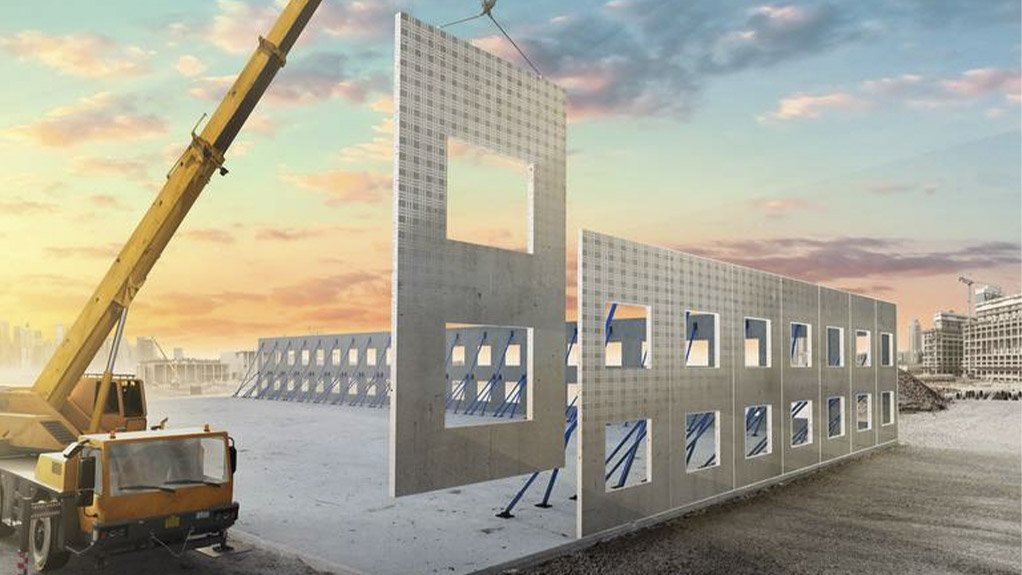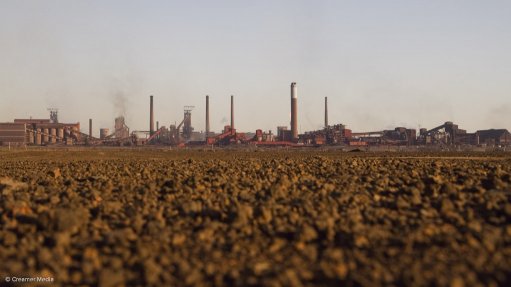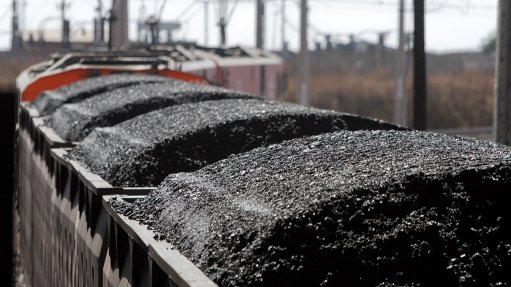Offsite construction a key trend for 2024
This article has been supplied as a media statement and is not written by Creamer Media. It may be available only for a limited time on this website.
The global offsite construction market is projected to top $235 billion by 2030, signifying a compound annual growth rate of almost 6% in the period from 2021 to 2030. This should hardly come as a surprise as the construction sector starts embracing modern industrial techniques to ‘mass produce’ components before reaching the building site.
In fact, offsite construction is characterised by the assembly of building components in a controlled, factory environment before installation on-site. With this comes several advantages such as enhanced efficiency in construction processes and a marked improvement in overall project timelines.
“As sustainability becomes a focus area for many consumers and companies worldwide, offsite construction brings with it several environmental advantages as well,” says Morag Evans, CEO of Databuild. “These include reduced waste and lower carbon footprints which align directly with global sustainability goals. If anything, offsite construction is becoming a responsible choice in the face of climate challenges with builders starting to embrace it wholeheartedly.”
Almost ten years ago, offsite construction was shown to help drive a more sustainable message while still delivering on the triple bottom line. Despite, this, offsite construction was still considered to be a niche approach. More recently, mindsets have begun changing.
The economic benefits of going this route are significant and have proven to be somewhat of a catalyst to move this method into the mainstream. For instance, reduced labour costs and shorter project timelines translate into massive cost savings. At a time when economic uncertainties are limiting construction budgets, the financial advantages are proving to be an attractive option. There are also labour shortages to consider which can be mitigated by this more ‘mass production’ methodology.
“Of course, challenges remain. Take transportation logistics as an example. This is a significant concern in widely dispersed markets like South Africa where development in outlying areas can make transport an issue to get pre-fab components from factory to site as cost-effectively as possible,” adds Morag.
There is also the initial investment in reconfiguring factories that must be better geared to handle offsite manufacturing components. But despite these hurdles, the global construction industry is increasingly recognising the long-term value and sustainability benefits of offsite construction.
An example of how offsite construction can be practically implemented is that of modular or ‘box’ homes. These homes can be built in smaller modules at an offsite, read factory, location. They are then transported to the property and installed. While they have yet to gain widespread adoption, they have become popular in developed markets like North America and Europe.
“This could very well be a defining year for offsite construction in not only South Africa but the rest of the world. As we turn towards more sustainable, efficient, and cost-effective building practices, going the offsite route might very well be the breath of fresh air the sector needed,” concludes Evans.
Comments
Press Office
Announcements
What's On
Subscribe to improve your user experience...
Option 1 (equivalent of R125 a month):
Receive a weekly copy of Creamer Media's Engineering News & Mining Weekly magazine
(print copy for those in South Africa and e-magazine for those outside of South Africa)
Receive daily email newsletters
Access to full search results
Access archive of magazine back copies
Access to Projects in Progress
Access to ONE Research Report of your choice in PDF format
Option 2 (equivalent of R375 a month):
All benefits from Option 1
PLUS
Access to Creamer Media's Research Channel Africa for ALL Research Reports, in PDF format, on various industrial and mining sectors
including Electricity; Water; Energy Transition; Hydrogen; Roads, Rail and Ports; Coal; Gold; Platinum; Battery Metals; etc.
Already a subscriber?
Forgotten your password?
Receive weekly copy of Creamer Media's Engineering News & Mining Weekly magazine (print copy for those in South Africa and e-magazine for those outside of South Africa)
➕
Recieve daily email newsletters
➕
Access to full search results
➕
Access archive of magazine back copies
➕
Access to Projects in Progress
➕
Access to ONE Research Report of your choice in PDF format
RESEARCH CHANNEL AFRICA
R4500 (equivalent of R375 a month)
SUBSCRIBEAll benefits from Option 1
➕
Access to Creamer Media's Research Channel Africa for ALL Research Reports on various industrial and mining sectors, in PDF format, including on:
Electricity
➕
Water
➕
Energy Transition
➕
Hydrogen
➕
Roads, Rail and Ports
➕
Coal
➕
Gold
➕
Platinum
➕
Battery Metals
➕
etc.
Receive all benefits from Option 1 or Option 2 delivered to numerous people at your company
➕
Multiple User names and Passwords for simultaneous log-ins
➕
Intranet integration access to all in your organisation





















